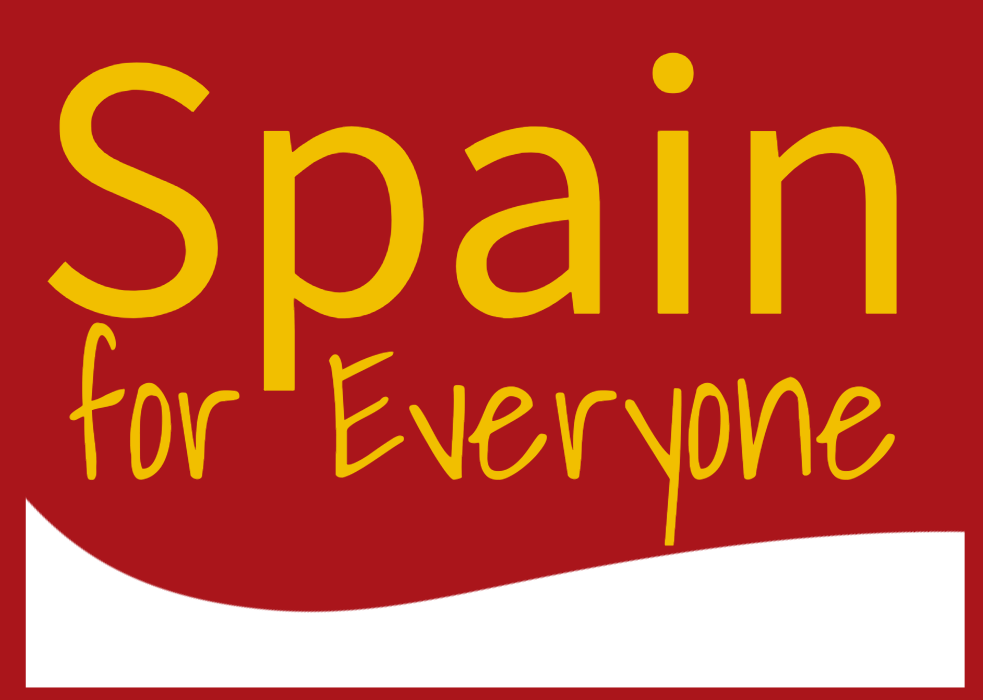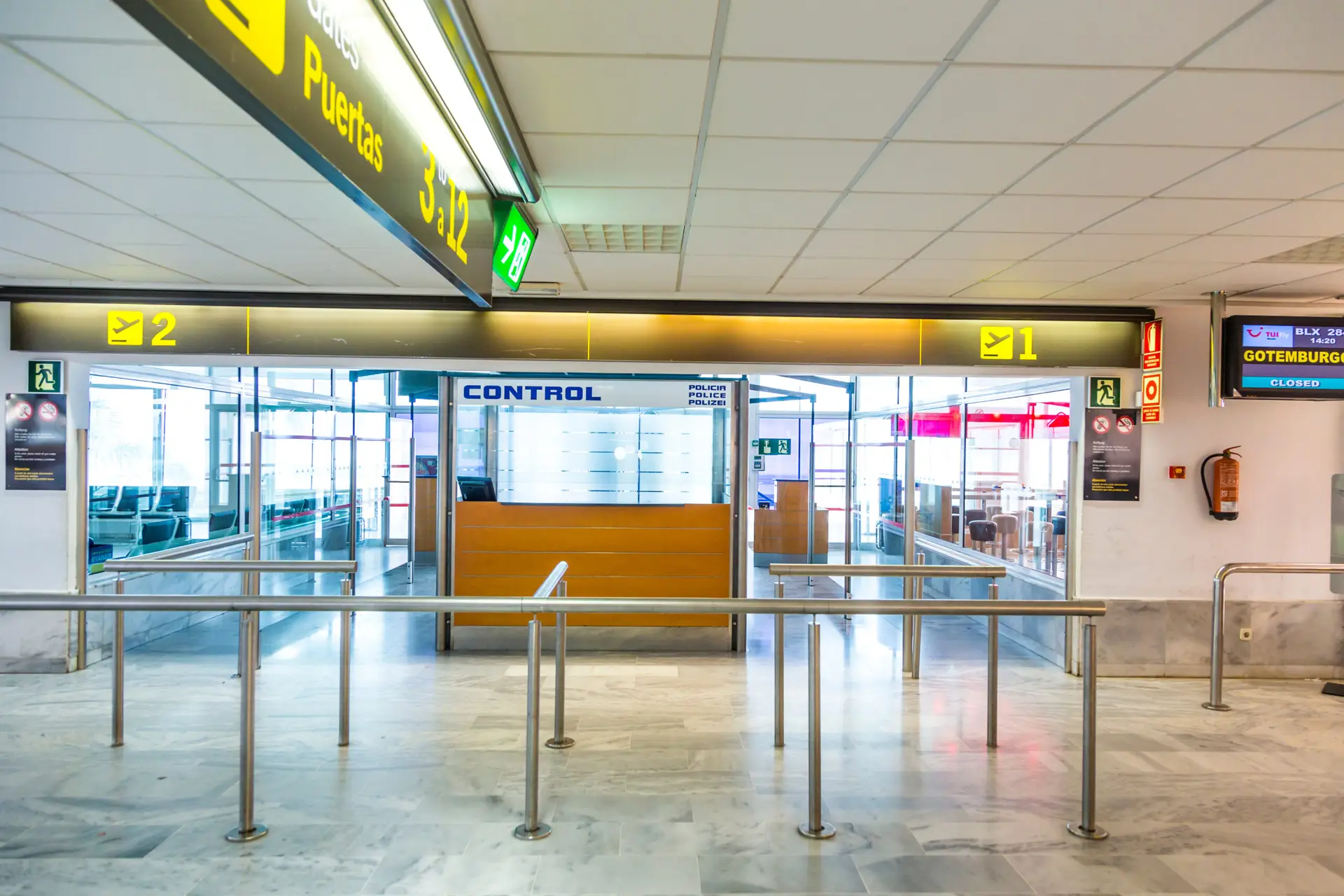
Get a Schengen Visa for Spain
If you are from one of over 100 countries, you need a Schengen visa to visit Spain. Find out here who needs one, how to get it, and what it allows you to do.
On this Page
Who needs a Schengen visa to visit Spain?
Who Needs a Schengen Visa for Spain?
Travellers holding passports from the following countries need Schengen visas in order to visit Spain for business or leisure for up to 90 days:
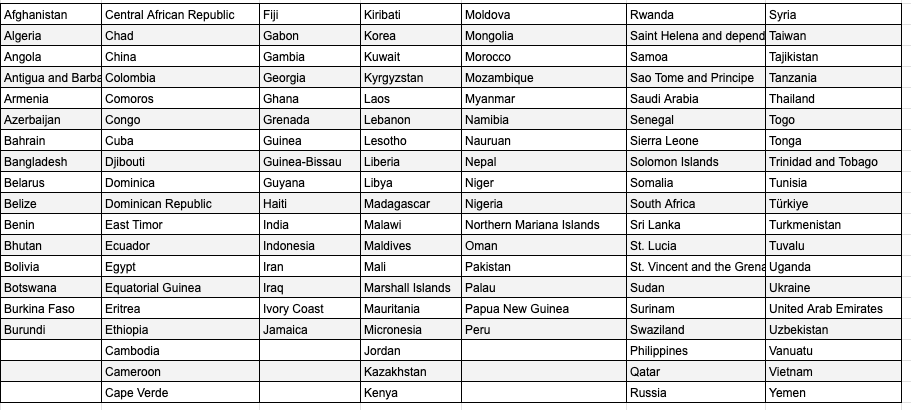
If your country is not featured above, it will fall into one of the categories below:
Who needs ETIAS instead of a Schengen Visa
Who needs an ETIAS authorisation?
Passport holders from the following countries do not require tourist visas to visit Spain for up to 90 days for business or leisure. However, they will require an ETIAS authorisation from 2025:
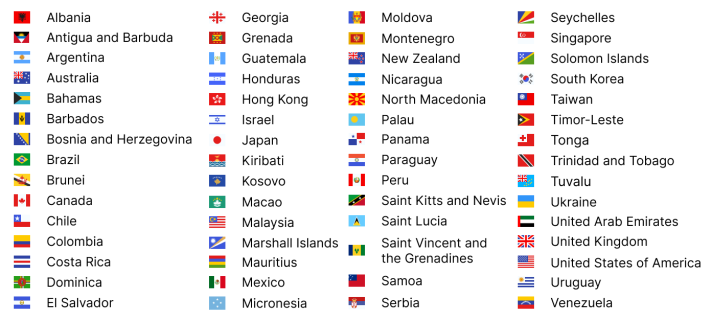
What Can I Do with an ETIAS?
Once you have your ETIAS authorisation, you will be able to visit the following countries for up to 90 days within any 180 period, for up to 3 years or until your passport expires:

How do I get an ETIAS Authorisation?
To find out more about ETIAS and how to get it, visit our dedicated ETIAS page.
Who doesn't need Schengen or ETIAS
Citizens with passports from European Free Trade Agreement (EFTA) countries can visit Spain for up to 90 days without the need for a visa or an ETIAS authorisation. These citizens are still subject to the 90/180 rule.
What are the EFTA Countries?
The 31 countries of the EFTA include:
4 non-EU countries:
Iceland, Liechtenstein, Norway and Switzerland
Plus the 27 countries of the European Union:
Austria, Belgium, Bulgaria, Croatia, Republic of Cyprus, Czech Republic, Denmark, Estonia, Finland, France, Germany, Greece, Hungary, Ireland, Italy, Latvia, Lithuania, Luxembourg, Malta, Netherlands, Poland, Portugal, Romania, Slovakia, Slovenia, Spain and Sweden.
How to get a Schengen visa for Spain
To get your Schengen visa for Spain you must apply to the Spanish embassy or consulate covering the area in which you are normally resident. Find the consular office that applies to you here.
Documents Required to Get your Schengen Visa
1. Schengen visa application form. Each applicant must complete and sign an official application form, filling in each of its sections. If the applicant is a minor, one of their parents must sign the application.
2. Photograph. A recent, passport-size, colour photograph, taken against a light background, facing forward, without dark or reflective glasses, or any garments concealing the oval of the face. Photographs of minors must not show any part of the adult holding them.
3. Valid, unexpired passport. Original and a photocopy of the page or pages of the passport that contain biometric data. The passport must be valid for at least 3 months beyond the planned departure date from the Schengen territory. It must also contain at least two blank pages. Passports issued more than 10 years ago will not be accepted.
4. Travel medical insurance. The insurance must cover the costs of repatriation for medical reasons or death, as well as for urgent healthcare and/or emergency hospital treatment for the entire stay and throughout the Schengen area. Coverage must be of at least €30,000 or its equivalent in local currency. If the application is for a multiple entry visa, the medical insurance must be valid for the first planned entry. The applicant must undertake to purchase insurance for future trips. You can see our recommended providers of travel insurance that meets all the requirements here.
5. Payment of the visa fee. The visa fee is 80 euros for people aged over 12 and 40 euros for children aged 6 to 11. Children aged 5 and under are exempt from the fee. Different fees are applied for nationals of Armenia, Azerbaijan, Belarus, Cabo Verde and Russia, pursuant to the respective Visa Facilitation Agreements formalized with these countries.
6. Documents corroborating the purpose of travel and the specifics of the stay; that the visa applicant has sufficient financial means; as well as the intention of the visa applicant to leave the Schengen area before the visa expires.
If you are asked to demonstrate sufficient financial means, this is usually interpreted as a minimum of 10% of the monthly equivalent of Spain’s government established Salario Mínimo Interprofesional (SMI) per person per day. In 2024, the SMI was €15,876. So, per month this would be €1323. This means that you would need to demonstrate you had access to €132 per person per day, and a minimum of €1190 per person for your trip, regardless of its length. If you already have some costs covered, this will usually be taken into account.
To demonstrate your access to the funds, you can usually show cash; travelers’ cheques; bank statements; proof of employment/income; proof of pension or investment funds; credit car statements; a sponsorship letter (proving someone else is funding you); or any other official documents that demonstrate funds. Showing a return ticket may also be helpful.
7. Proof of residence in the consular district.
When necessary to assess the application, the Consular Office may request additional documents or data and may also ask the applicant to come in for a personal interview.
Only those applications meeting the requirements specified in sections 1, 2, 3 and 5 will be accepted.
Procedure for Getting Your Schengen Visa
- Who must apply: Applications must be submitted in person. If the applicant is a minor, the application must be submitted by their legal representatives.
- Place of submission: Applications must be submitted in person at the Consular Office or, when available, at the Visa Application Centre. In either case, an appointment is necessary.
- Visa application period: Visa applications must be submitted between 6 months and 15 days before the scheduled date of travel. Those travelling by sea may apply for the visa up to 9 months before the date of travel.
- Proof of receipt: When a visa application is submitted, the Consular Office will provide the applicant with proof of receipt of the application with a code that enables them to check the status of the dossier.
- Biometric data capturing: The applicant’s facial image and fingerprints will be captured during the visa application procedure. Applicants under 12 and applicants whose fingerprints have been taken in the last 59 months are exempt from fingerprint taking. However, in the latter case, if the applicant’s prints are of poor quality, the Consular Office will request that they come back in to have their fingerprints retaken.
- Rectifying the application: The Consular Office may ask the applicant to submit any missing documents, or to provide additional documents or data that are necessary for a decision regarding the application. The applicant may also be called in for a personal interview.
- Decision period: The legal period for reaching a decision is of 15 calendar days as of the day after the application submission date, but this period may be extended to 45 calendar days if an interview or additional documents are requested.
- Visa applications submitted by nationals of certain States require consultation with the central authorities that could affect the duration of the visa procedure.
- Return of passport and other documentation: The Consular Office or Visa Application Centre will inform the applicant regarding the procedure for the return of the passport and any other original documentation.
- Permission granted by the visa: A visa does not automatically entitle someone to enter the Schengen area. The traveller must meet all legal entry requirements (not be banned from entering Spain; enter at a legal entry point; not have a dangerous infectious disease, etc)
- Visa refusal: Visa refusals will always be notified in writing, setting forth the grounds on which the decision adopted was based.
- Appeals: Check the process for the consular office where you apply. If a visa is refused, the applicant may usually submit an appeal for reconsideration to the Consular Office within 1 month of the day following the date on which notification of the refusal is received. An application for judicial review may also be filed with the High Court Justice of Madrid within the 2-month period beginning the day after the date on which the applicant receives notification of the visa refusal or of the dismissal of the reconsideration appeal.
What does a Schengen visa allow me to do?
Spain is in the Schengen Area. This means your tourist visa for Spain is actually a visa for the Schengen Area. It allows you to visit the entire area for up to 90 days in any 180 day period. There are different types of Schengen visa available. For example, your visa may be valid for 3 or 5 years, and it may allow you to enter and leave the area only once (single entry) or as many times as you like (multiple entry) during the validity period of the visa, so long as you do not stay for more than 90 days in any 180 day period. Note that if you are planning to visit multiple countries, in theory you should apply for the visa for the country where you plan to spend most time.
The 90/180 Rule
If you require an Schengen visa to visit Spain, your Schengen visa will allow you to remain in the area comprising all the Schengen countries for up to 90 days in any rolling 180 day period. After this time, you must leave the entire area and go to a country which is not in the Schengen area. Use our handy Schengen calculator to ensure you stay within the rules.
Stays of more than 90 days
For stays of more than 90 days in Spain, you must do the following:
- Citizens of countries that require ETIAS or a Schengen visa to visit Spain: You must apply for the appropriate residence visa. Once you have this, you must also apply for a NIE and TIE. Find out more about residence visas here. Find out more about the TIE and other associated requirements here.
- Citizens of countries that do not require ETIAS or a Schengen visa to visit Spain (EFTA countries). You must apply for a certificado de registro and NIE. Find out more about these and other associated requirements here.
More articles that may be of interest:

Help with Moving to Spain
Help with Moving to Spain We offer a range of services to help with your

The dreaded okupas/ squatters in Spain: The end in sight?
The end for Squatters in Spain? Nov-24 A new amendment to the law regarding squatters

Residency in Spain for EU citizens: our easy to follow guide
Residency in Spain for EU Citizens If you are an EU or EFTA citizen, you

Move to Spain -practical information to help make your move to beautiful Spain easy
Move to Spain If you’re thinking about a move to Spain, there’s quite a lot
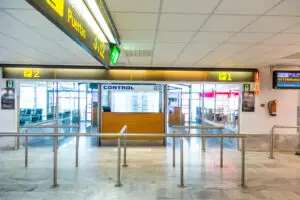
Visit Spain – all the information you need for an easy stay in this beautiful country
Visit Spain Use this page to guide you to the information you need On this
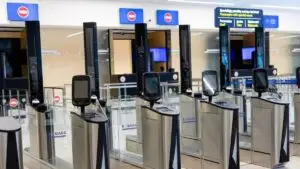
EES Spain: Our easy to follow guide
EES Spain If you are wondering what the EES system is and how it will
Share this page
